
Why Leadership matters in scaling up and Globalisation of Education and Training Industry.
Indian Education Congress 2017 witnessed the confluence of learned minds engaged in a panel discussion concerning the dire need for globalization in every aspect of Education and what has Leadership to do with the same.
Today’s best Practices are tomorrow’s Reforms, for scaling up, going global and building leadership in Education Industry. India is considered to be a young nation unlike the western world that is becoming geriatric. There is a dire need for globalization in every aspect of Education, be it the faculty, curriculum, training, assessment, certifications, and accreditations.
Being present in the dice were five experts who explored different approaches and we shall see who drive the best results for students. In this platform, they take the next to maintain their focus on academic achievements and Educational equity.
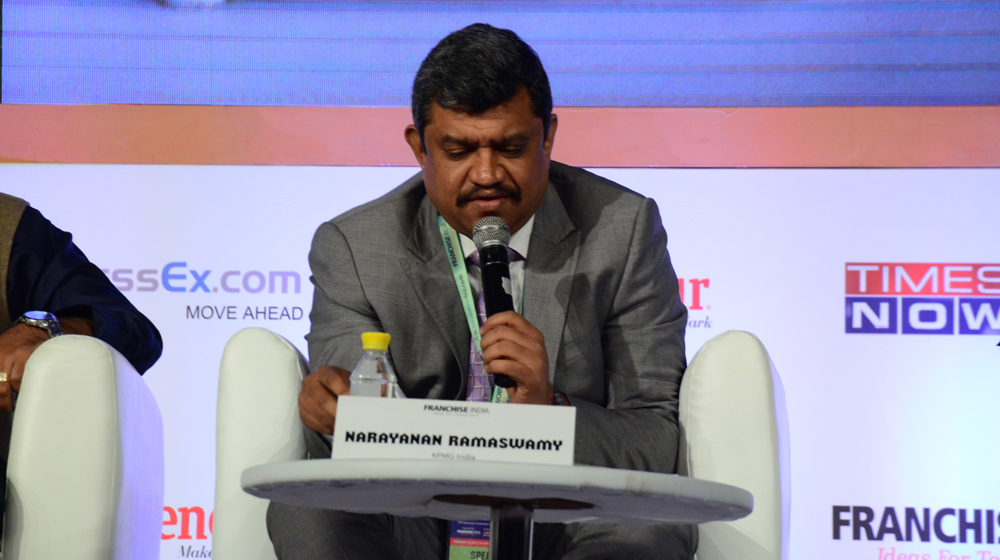 Mr. Narayanan Ramaswamy, Partner Education, KPMG India.
Mr. Narayanan Ramaswamy, Partner Education, KPMG India.
The panel discussion was commenced by Mr. Narayanan Ramaswamy, as the Session Moderator. He enlightened the panel with his words of encouragement and wisdom.
We are a very young nation. Studies have proved that by 2030, we will have 1/3rd of the world’s young population in India. It is imperative to look at global markets and it’s very important that Globalisation and global outlook are adapting to what is required for the global young. We need to make sure when the entire system starts looking at global markets, or start thinking global.
Talking about the magnitude of requirement of Education in India, we have the pre schools which amount to 20-30 million, where school education contains 2,50,000 million or more numbers. Higher Education is ahead in the race with 40-50 million in the competition.
Educational Scenario in India today
5 trends mentioned by Mr. Narayanan in this regard:
Constraints: Education is a skill development sector. First thing, that is mostly talked about is Constraints, In terms of regulation, geography, availability of faculty, resources.
Growth Challenge: Today, hardly anyone speaks about going beyond boundaries. In the past decade we brought more than 200 universities in the private space in India. Scaling up growth challenge seems to be one common factor in the Education system.
Collaboration: In the recent past, Globalisation has been with collaborations in the Educational space, with Indian Institutes going global.
Time Scale: People don’t want to wait for decades anymore. Now they want to wait for months, if not weeks.
Excellence Requirement: There is absolutely no space for failure because the required excellence is so high that we don’t seem to have a second chance in any of the matter.
He further added that, “To get all these 5 factors in place, one needs to have Leadership at all levels; at the regulatory level and at an institutional level.
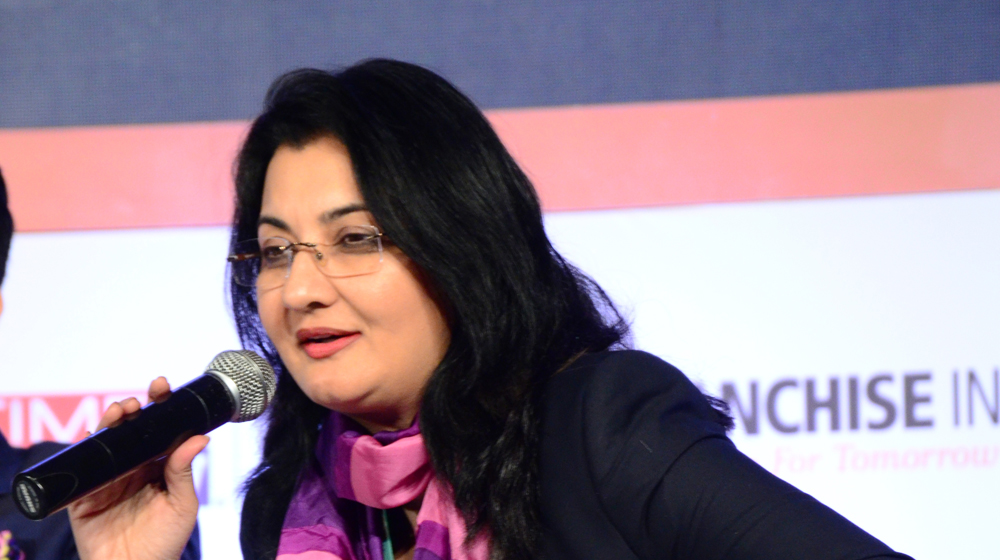 Ms. Manjula Pooja Shroff, Chairman, Kalorex.
Ms. Manjula Pooja Shroff, Chairman, Kalorex.
How are you looking to Scaling at pre-schools?
The reason is fairly still, not regulated as a sector. It moved rapidly into a structured set up but there has been very little licensing, little regulations, with very little permissions to take. The segment has also seen a lot of private equity funding.
Ms. Manjula gives an insight of the ‘Neighborhood Concept Thing.’ Stating comfort, where there is a demand of a neighborhood school for it will be convenient for mothers to reach out to their wards anytime. For this, there is a regulation being talked about, where the first primary catchment is going to be between 1-2 km.
All of this monopoly of being a good school etc, is going to be a test of time, added the Chairman of Kalorex.
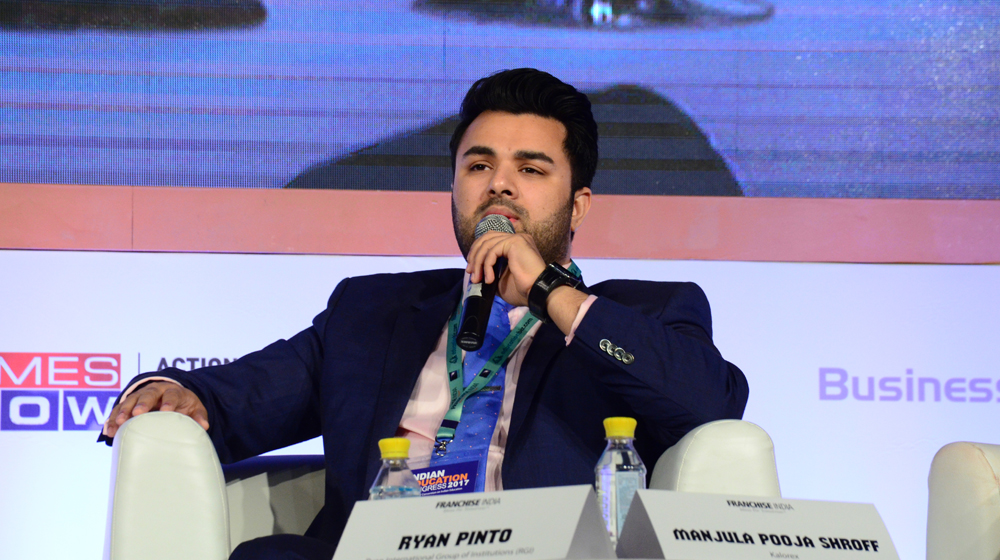 Mr. Ryan Pinto, Chief Executive Officer, Ryan Group of Institutions
Mr. Ryan Pinto, Chief Executive Officer, Ryan Group of Institutions
How can Leadership make K12 a sustainable scaled up Institution?
Coming to the aspect of Leadership and scale, it is truly by the Almighty’s grace that the leaders we have in our organization, be it the Chairman or the Managing Director, it is their vision, dedication, their passion, commitment and also their focus that drive the Institution to success.
Leadership for Mr. Pinto is to be a Learner. Learning can be from one another, from other people, also it can be acquired from the best practices.
“We need to be a learning organization, a learning community and be capable enough to not only learn from the best practices but also contextualize it. It is important to see what solution works in the given context”, he further added.
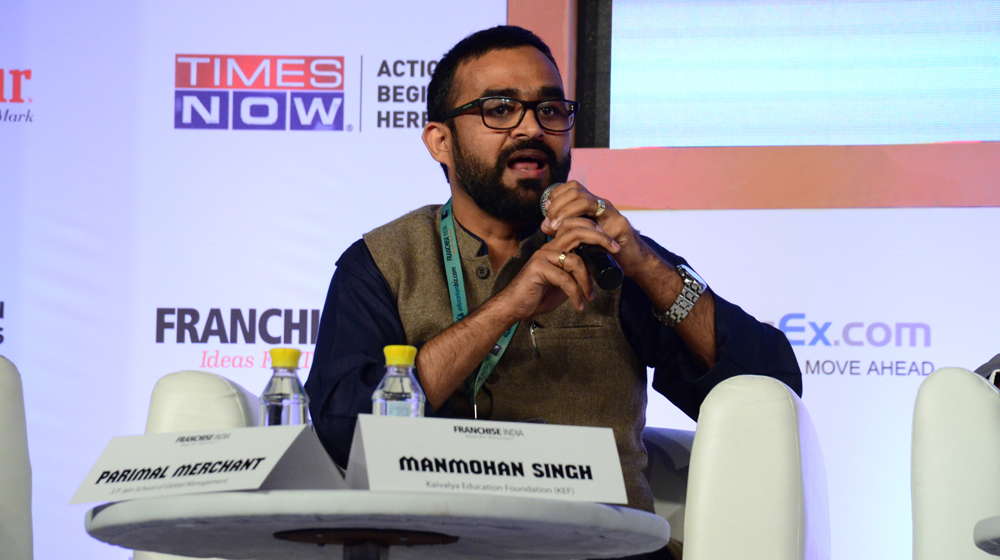 Mr. Manmohan Singh, Program Director & Co Founder, Kaivalya Education Foundation
Mr. Manmohan Singh, Program Director & Co Founder, Kaivalya Education Foundation
How transforming the public schools system and particularly Leadership has played a role in it.
At the context of public Education System, today, the parameter of measurement is based on the current expectation we have from the system, which is around Learning. Initially, the system was designed for schooling and not for Learning. The system was designed to train, not necessarily help us achieve the potentials of our lives but,
The aim of Education now, is completely to what the system was actually designed for.
There is no choice of selection for the scale, diversity and the challenge in this system.
In the system, there is less concern shown for the person appointed as the Head of the Institution, which means one can be a good teacher but not a good leader.
But today in the Public Education System, the selection of leaders is based on seniority and not on compliments.
He concluded by saying, “If you do not focus on building the leaders, and setting up the institutional framework to ensure not just to build the teacher but the leader as well, it’s difficult to achieve what we are trying to achieve”.
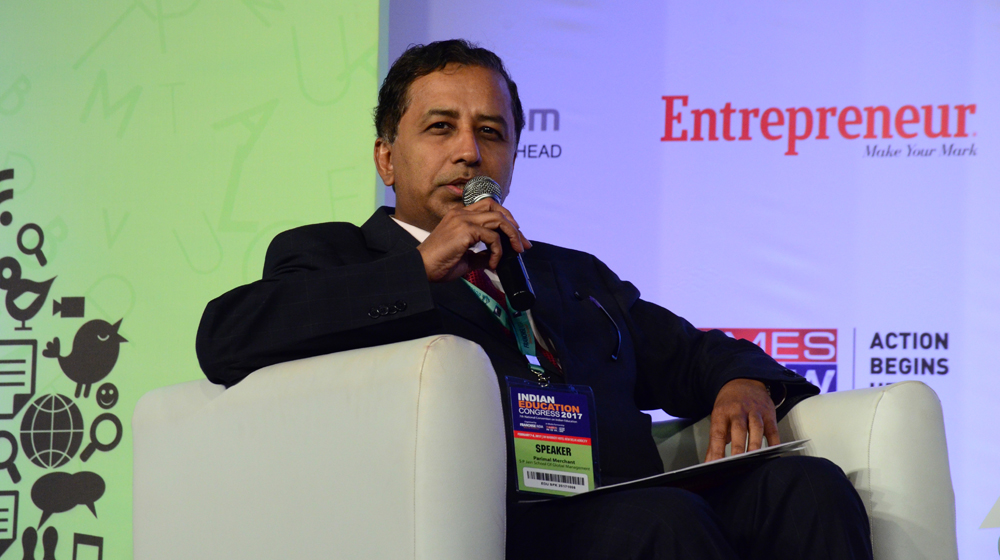 Mr. Parimal Merchant, Director of Family Global Business Management, SP Jain School of Global Management
Mr. Parimal Merchant, Director of Family Global Business Management, SP Jain School of Global Management
Building one of the nobly relevant higher Education and what has been your experience and how do you think this can be scaled?
According to Mr. Merchant, “We have to think in terms of global and local; we have to think in terms of new and old; we have to think in terms of competition and collaboration”.
“To be global is not just to sit in a classroom, but, to evaluate, how different is your approach to any problem”.
When we don’t talk about Technology and Digitisation, we genuinely believe that the most important component of Learning is Practical Grassroots Learning in any family business. Extracting learning from previous generation, building on them through our exposure, internalizing and using all this for social contribution is an important component to which Education should be based.
Educationists should build the capacities of the spirit of inquiry, creativity, entrepreneurial and moral leaderships among students and become their role model.

